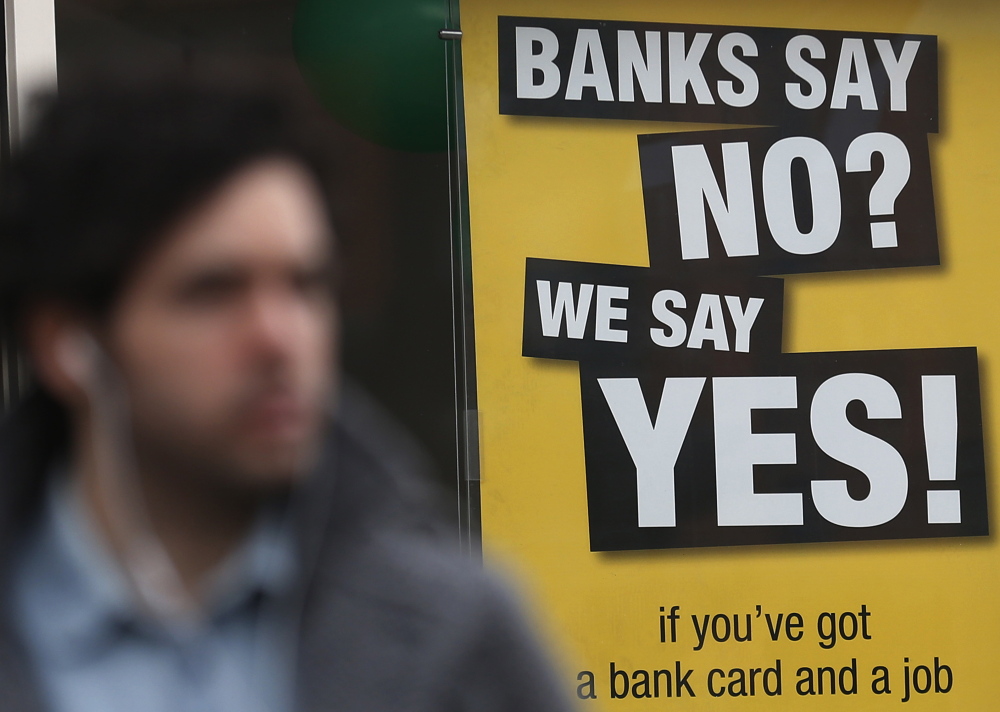WASHINGTON — Each month, more than 200,000 needy U.S. households take out what’s advertised as a brief loan.
Many have run out of money between paychecks. So they obtain a “payday” loan to tide them over. Problem is, such loans can often bury them in fees and debts. Their bank accounts can be closed, their cars repossessed.
The Consumer Financial Protection Bureau proposed rules Thursday to protect Americans from stumbling into what it calls a “debt trap.” At the heart of the plan is a requirement that payday lenders verify borrowers’ incomes before approving a loan.
The government is seeking to set standards for a multibillion-dollar industry that has historically been regulated only at the state level.
“The idea is pretty common sense: If you lend out money, you have to first make sure that the borrower can afford to pay it back,” President Obama said in a speech in Birmingham, Alabama. “But if you’re making that profit by trapping hard-working Americans into a vicious cycle of debt, you’ve got to find a new business model.”
The payday lending industry warns that if the rules are enacted, many impoverished Americans would lose access to any credit. The industry says the CFPB should further study the needs of borrowers before setting additional rules.
“The bureau is looking at things through the lens of one-size-fits-all,” argued Dennis Shaul, chief executive of the Community Financial Services Association of America, a trade group for companies that offer small-dollar short-term loans or payday advances.
But that lens also reveals some troubling pictures.
Wynette Pleas of Oakland, California, says she endured a nightmare after taking out a payday loan in late 2012. A 44-year-old mother of three, including a blind son, Pleas borrowed $255 to buy groceries and pay the electricity bill.
But as a part-time nursing assistant, she worked only limited hours. Pleas told her lender she’d be unable to meet the loan’s two-week deadline. The lender then tried to withdraw the repayment straight from her bank account even though Pleas lacked the funds. The result: A $35 overdraft fee and a bounced check.
After the incident was repeated five more times, Pleas said the bank closed her account.
Collection agencies began phoning Pleas and her family. About six months ago, she learned that the $255 loan had ballooned to a debt of $8,400. At that point, she faced the possibility of jail.
Send questions/comments to the editors.



Success. Please wait for the page to reload. If the page does not reload within 5 seconds, please refresh the page.
Enter your email and password to access comments.
Hi, to comment on stories you must . This profile is in addition to your subscription and website login.
Already have a commenting profile? .
Invalid username/password.
Please check your email to confirm and complete your registration.
Only subscribers are eligible to post comments. Please subscribe or login first for digital access. Here’s why.
Use the form below to reset your password. When you've submitted your account email, we will send an email with a reset code.